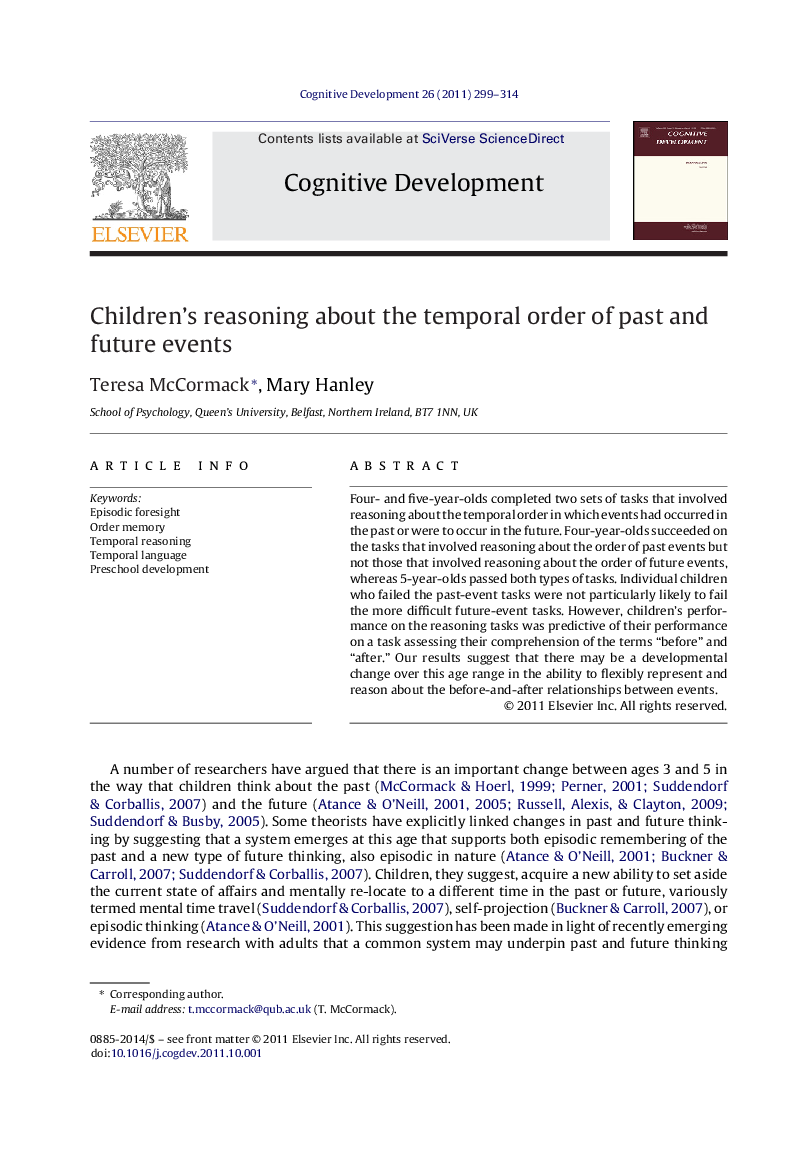| Article ID | Journal | Published Year | Pages | File Type |
|---|---|---|---|---|
| 916553 | Cognitive Development | 2011 | 16 Pages |
Four- and five-year-olds completed two sets of tasks that involved reasoning about the temporal order in which events had occurred in the past or were to occur in the future. Four-year-olds succeeded on the tasks that involved reasoning about the order of past events but not those that involved reasoning about the order of future events, whereas 5-year-olds passed both types of tasks. Individual children who failed the past-event tasks were not particularly likely to fail the more difficult future-event tasks. However, children's performance on the reasoning tasks was predictive of their performance on a task assessing their comprehension of the terms “before” and “after.” Our results suggest that there may be a developmental change over this age range in the ability to flexibly represent and reason about the before-and-after relationships between events.
